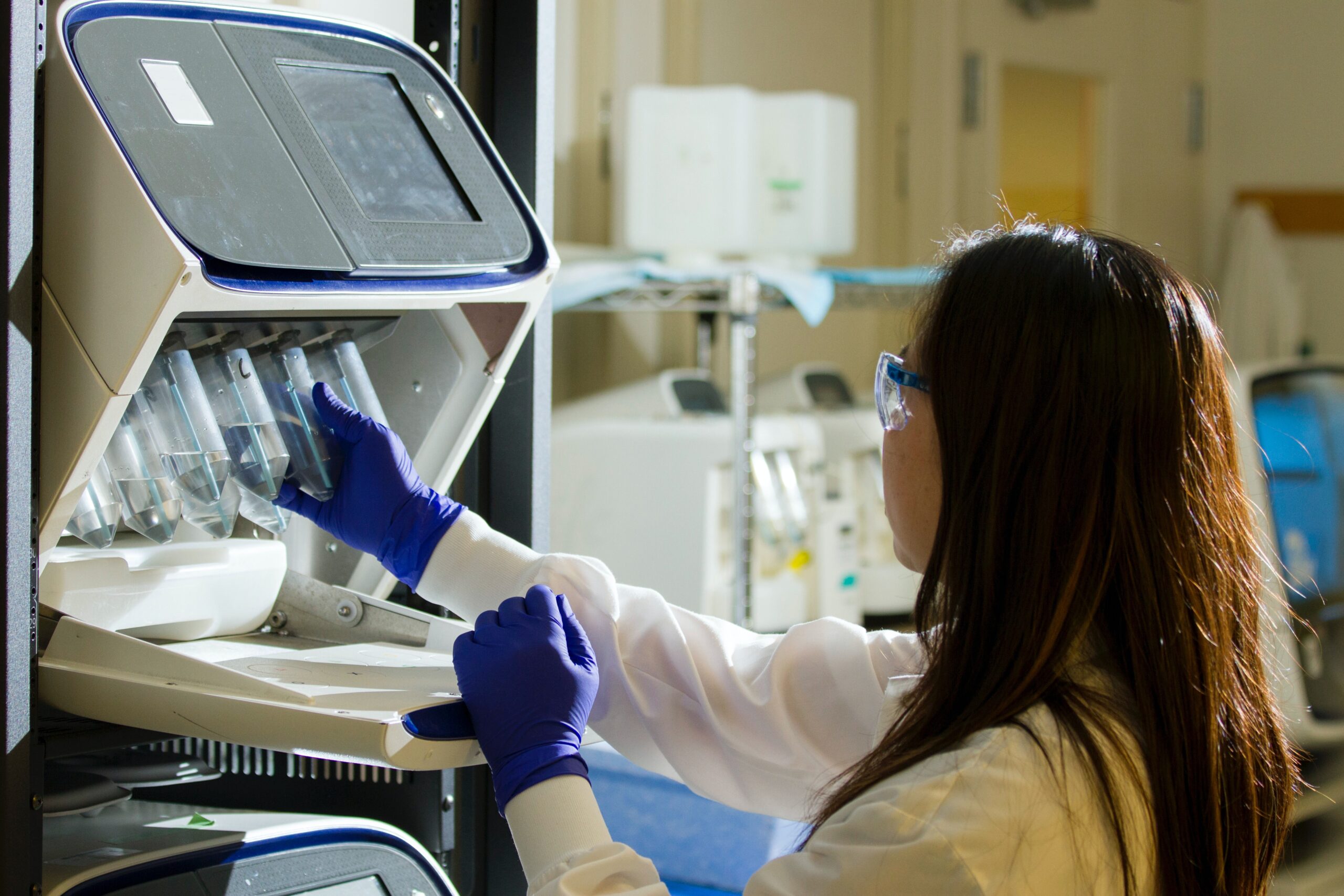Somerville’s bluebird bio Inc. has won its third U.S. drug approval since splitting into two companies.
On Friday, the Food and Drug Administration approved lovo-cel, a gene therapy for sickle-cell disease. The drug will be marketed under the name Lyfgenia.
The FDA announced Lyfgenia’s approval at the same time it said it had approved Casgevy, the CRISPR-based sickle-cell treatment made by Boston’s Vertex Pharmaceuticals Inc. (Nasdaq: VRTX) and CRISPR Therapeutics Inc. (Nasdaq: CRSP).
Together, Lyfgenia and Casgevy are the first two gene therapies for sickle-cell disease to be approved in the U.S.
“Sickle cell disease is a rare, debilitating and life-threatening blood disorder with significant unmet need, and we are excited to advance the field especially for individuals whose lives have been severely disrupted by the disease by approving two cell-based gene therapies today,” Nicole Verdun, director of the Office of Therapeutic Products within the FDA’s Center for Biologics Evaluation and Research, said in a statement. “Gene therapy holds the promise of delivering more targeted and effective treatments, especially for individuals with rare diseases where the current treatment options are limited.”
Bluebird shares swung up slightly in the first half-hour after the FDA announced the approval, but after a pause in trading in the middle of the day, they dropped precipitously. That’s likely because the historic double approval pits Lyfgenia and Casgevy against each other, and Lyfgenia has a higher price tag but more safety warnings.
By market close, bluebird’s share price had dropped more than 40%, to $2.86. The company has a market capitalization of $312.7 million — $252 million lower than it was just four hours prior.
News of the approval came earlier than anticipated, but it was not unexpected. Industry watchers have been awaiting an approval since August, when bluebird announced that the FDA would not be convening an advisory committee meeting before deciding on lovo-cel’s fate. The absence of such a meeting typically indicates that the agency feels confident in the data the company submitted; in the words of Leerink Partners analyst Mani Foroohar, it “suggests a smooth path to approval.”
The FDA had given itself a deadline of Dec. 20 to issue a decision on lovo-cel.
The approval is good news for bluebird, which has been working to remake itself as a gene therapy company since splitting into two in November 2021. The split put bluebird in charge of gene therapy and a new company, called 2seventy bio Inc. (Nasdaq: TSVT) and headed up by longtime bluebird CEO Nick Leschly, in charge of cancer treatments, including Abecma, an already-approved CAR-T it had developed with Bristol Myers Squibb Company (NYSE: BMY).
After the split, bluebird’s new CEO, Andrew Obenshain, said he planned to launch three new gene therapies by the end of 2023. The company succeeded on two fronts, netting approvals for treatments for beta thalassemia and the neurological disorder cerebral adrenoleukodystrophy, but hit a snag in March when its lovo-cel application was unexpectedly delayed. The FDA wanted more data, bluebird said at the time.
The approval means opportunity for a third revenue stream for bluebird, which has struggled in part due to its focus on rare diseases. The company has yet to announce plans for pricing.
“Bringing Lyfgenia to people living with sickle cell disease is a milestone that bluebird has been working toward for almost a decade—and one that members of the sickle cell disease community have been waiting on for much longer,” Obenshain said in a statement. “Lyfgenia has the potential to have a transformational impact for patients who currently live under the shadow of unpredictable and debilitating vaso-occlusive events. This approval also marks bluebird’s third ex vivo gene therapy approved by the FDA for a rare genetic disease and second FDA approval for an inherited hemoglobin disorder, cementing our position as a gene therapy leader.”


